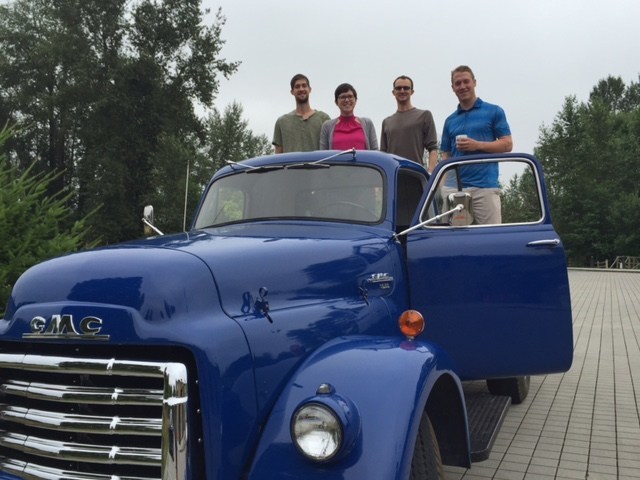
21 Acres All-Electric Delivery Box Truck to Move Local Produce As Carbon Emission Reduction Initiative
21 Acres All-Electric Delivery Box Truck to Move Local Produce As Carbon Emission Reduction Initiative
- posted on: December 2, 2020
- posted by: Rebecca Jordan
"*" indicates required fields


21 Acres is building the ultimate repurposed, reused, recycled electric box truck to amplify conversations about food systems and climate change. The nonprofit is building a 12-ton, fully battery-powered, refrigerated electric delivery truck that will be capable of extended highway and city driving. The long-range truck is a show-stopper with an 18-foot box and a classic 1954 GMC chassis. It is entirely emission-free – a climate-friendly model for moving food from local sustainable farms to Seattle Metro area chefs and food service providers.
Not only are governments at the local and state levels prioritizing green initiatives, forward thinking nonprofit groups such as the 21 Acres Center for Local Food & Sustainable Living are taking the lead in linking consumers’ increasing passion for caring about how their food is produced and bringing transportation into the overarching conversation. Now, when people shift spending toward Organic and sustainable foods on the store shelves or at their local market, they are not only looking for chemical-free and GMO-free options, they are waking up to all the environmental costs associated with the food system: Consumers are ultimately becoming more mindful about how the food got to the store from farm and production facilities.
Conventional food distribution systems rely on heavily-polluting diesel trucks zigzagging the continent. Trucks and buses alone account for nearly 25 percent of total US greenhouse gas emissions from transportation. While many federal regulations for carbon emissions are being dismantled, states are taking climate action into their own hands by transcending bipartisan politics and investing in alternative transportation solutions for trucking needs. In July fifteen states and the District of Columbia signed a Memorandum of Understanding pledging to develop a plan to eliminate diesel emissions by 2050. These policymakers are using resources to support more environmentally-friendly purchases with education, rebates, and more.
On behalf of 21 Acres, the all-volunteer build team for the 1954 GMC conversion is led by Stephen Johnsen of High Performance EV and past president of the Seattle Electric Vehicle Association. Johnsen is sought after as an expert in electric vehicles: He took a break from the build to join General Motors’ team for their Chevrolet eCOPO project – an all-electric Camaro drag racing car. According to Johnsen, “The General Motors race car uses the same motor drive controller as the 21 Acres truck except it has two of them. I’m glad to see the momentum that Detroit seems to have these days towards investing in bringing more electric vehicles to the masses.”
The 21 Acres electric delivery truck has a modern 100% electric powertrain and has used local labor for the extensive design, fabrication, and integration. Johnsen says, “We have sourced as many US made parts as possible; the batteries are from California, some control modules from Missouri, the gauges from Utah and California, the electric motor and drive controller as well as the super-insulated box are from Oregon, and the onboard chargers are from Washington. It’s exciting seeing the truck come together knowing much of its components are American-made and it has the striking appearance of a classic restored truck that will attract attention wherever it goes!”
Gretchen Garth, founder of 21 Acres, is enthusiastic about how the fifteen state agreement and this project will help demonstrate to the world that purely electric propulsion can be a viable choice even for heavy commercial trucks; it could be used as a blueprint for designers, automotive manufacturers, and policymakers: “We need people embracing farmers who use sustainable and regenerative farming techniques that sequester carbon in the soil while at the same time they are considering how the entire food system can move away from contributing negatively to environmental outcomes and instead provide exciting solutions to solve climate change.”










 back to blog overview
back to blog overview








